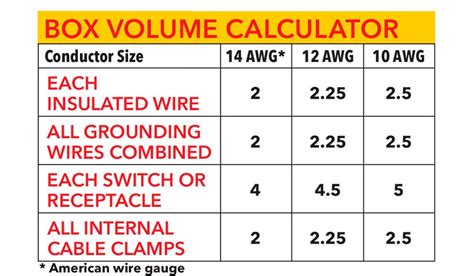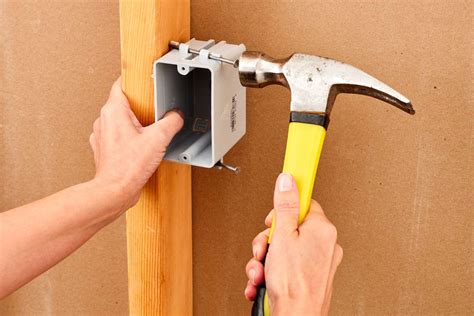can i cover an electrical box with drywall I've seen many electrical boxes that are full of drywall compound, often to the point of having to dig the wires out of it so you can use it. To prevent this, should the boxes be taped up (with tape and/or plastic cover) prior to drywall going . Study with Quizlet and memorize flashcards containing terms like The direct current (DC) power supply modules in fiber-nodes and distribution amplifiers do what?, What type amplifiers are designed and intended to provide the final boosting of amplitude to the downstream signals exiting the headend?, Under what conditions is installation of a .
0 · standard electrical box size chart
1 · putting electrical box existing drywall
2 · installing outlet box in drywall
3 · installing electrical box on drywall
4 · electrical outlet boxes for drywall
5 · electrical box for existing wall
6 · electrical box for existing drywall
7 · drywall mounted electrical box wings
Always use a higher argon-based shielding gas, such as 75% argon/25% carbon dioxide. Argon carries less heat than pure CO2, and you’ll experience less spatter. When welding 304 stainless steel, ER308, ER308L and ER308LSI wires are compatible, but for welding 316L stainless, you need a 316L wire.
You cannot cover any junction box that still has live wires in it. Your best bet is to either remove the box all together or just put a cover plate on it.I've seen many electrical boxes that are full of drywall compound, often to the point of having to dig the wires out of it so you can use it. To prevent this, should the boxes be taped up (with tape and/or plastic cover) prior to drywall going .
You are correct, the junction boxes must remain accessible. The NEC 314.29 prohibits covering up boxes such that you'd need to remove "part of the building" to access the . Energized electrical wires must remain in permanently accessible junction boxes. They cannot be covered with drywall. The covers count as an accessible means. A buried . You should never cover a junction box with drywall if there are any wires inside of it. This could cause serious electrical problems and potentially even a fire. When you’re finished, make sure to check for any hidden wires .
You can cover continued electrical wire (as is normally covered in your walls). The first photos appear to simply be holes into the walls that likely had a bundle of wire pass-through them. . If 'it'* has a removable cover and contains any circuit conductors it must not be covered by drywall or and finish. *conduit bodies, other fittings, boxes, wireways etc. As long as there are no wires inside the box, you can cover it with drywall. If the box is still acting as a junction box, however, and wires are joined inside it, the electrical code .
It is illegal to put drywall over an electrical outlet or junction box with electrical wires connected or terminated inside the box. If the electrical outlet box is empty or the wire runs through it without terminating, you can cover it with drywall.You cannot cover any junction box that still has live wires in it. Your best bet is to either remove the box all together or just put a cover plate on it.I've seen many electrical boxes that are full of drywall compound, often to the point of having to dig the wires out of it so you can use it. To prevent this, should the boxes be taped up (with tape and/or plastic cover) prior to drywall going up, or is this just caused by lazy/sloppy mudding?
You are correct, the junction boxes must remain accessible. The NEC 314.29 prohibits covering up boxes such that you'd need to remove "part of the building" to access the wires inside. The drywall is considered "part of the building."

standard electrical box size chart
Energized electrical wires must remain in permanently accessible junction boxes. They cannot be covered with drywall. The covers count as an accessible means. A buried splice would be very hard to troubleshoot. Some of the switches . You should never cover a junction box with drywall if there are any wires inside of it. This could cause serious electrical problems and potentially even a fire. When you’re finished, make sure to check for any hidden wires and disconnect them before covering the box up.You can cover continued electrical wire (as is normally covered in your walls). The first photos appear to simply be holes into the walls that likely had a bundle of wire pass-through them. There is no junction there and you can easily cover them (and remove the boxes if you want). If 'it'* has a removable cover and contains any circuit conductors it must not be covered by drywall or and finish. *conduit bodies, other fittings, boxes, wireways etc.
As long as there are no wires inside the box, you can cover it with drywall. If the box is still acting as a junction box, however, and wires are joined inside it, the electrical code mandates a removable cover. Covers come in plastic or . Follow these expert tips to install an electrical box into drywall or plaster without the need for wall studs or joists. Not all fixtures need to be attached to a wall stud or joist. Lightweight fixtures can hold up on plaster or drywall if you have a remodel electrical box.
It is illegal to put drywall over an electrical outlet or junction box with electrical wires connected or terminated inside the box. If the electrical outlet box is empty or the wire runs through it without terminating, you can cover it with drywall.
You cannot cover any junction box that still has live wires in it. Your best bet is to either remove the box all together or just put a cover plate on it.I've seen many electrical boxes that are full of drywall compound, often to the point of having to dig the wires out of it so you can use it. To prevent this, should the boxes be taped up (with tape and/or plastic cover) prior to drywall going up, or is this just caused by lazy/sloppy mudding? You are correct, the junction boxes must remain accessible. The NEC 314.29 prohibits covering up boxes such that you'd need to remove "part of the building" to access the wires inside. The drywall is considered "part of the building." Energized electrical wires must remain in permanently accessible junction boxes. They cannot be covered with drywall. The covers count as an accessible means. A buried splice would be very hard to troubleshoot. Some of the switches .
You should never cover a junction box with drywall if there are any wires inside of it. This could cause serious electrical problems and potentially even a fire. When you’re finished, make sure to check for any hidden wires and disconnect them before covering the box up.You can cover continued electrical wire (as is normally covered in your walls). The first photos appear to simply be holes into the walls that likely had a bundle of wire pass-through them. There is no junction there and you can easily cover them (and remove the boxes if you want). If 'it'* has a removable cover and contains any circuit conductors it must not be covered by drywall or and finish. *conduit bodies, other fittings, boxes, wireways etc. As long as there are no wires inside the box, you can cover it with drywall. If the box is still acting as a junction box, however, and wires are joined inside it, the electrical code mandates a removable cover. Covers come in plastic or .

putting electrical box existing drywall
A metal fabricator manipulates metal for construction and manufacturing companies. They are required to cut, shape, position and align different metals. They must also understand assembly instructions, ensure required parts are available, and ensure parts meet quality control standards.
can i cover an electrical box with drywall|putting electrical box existing drywall